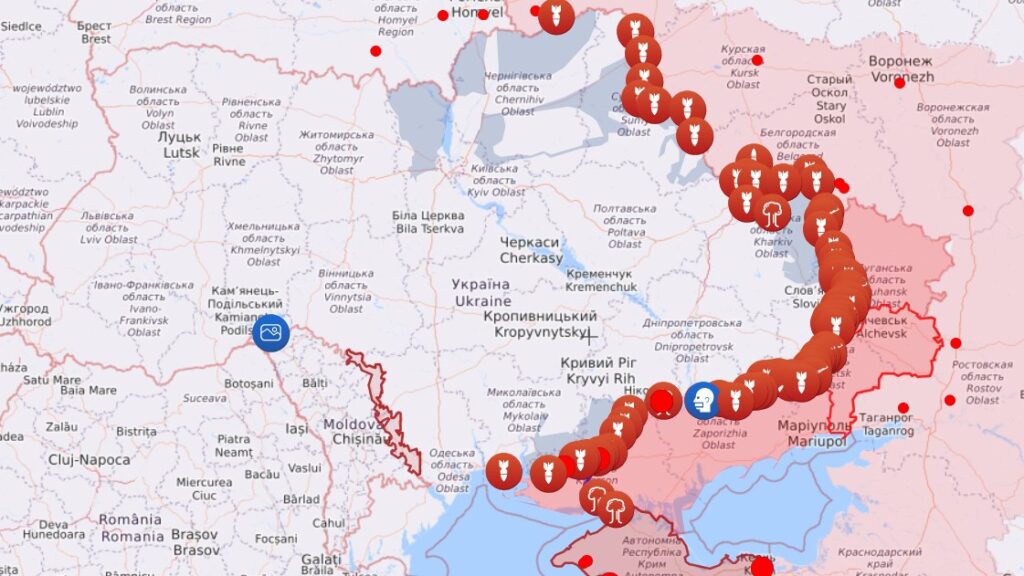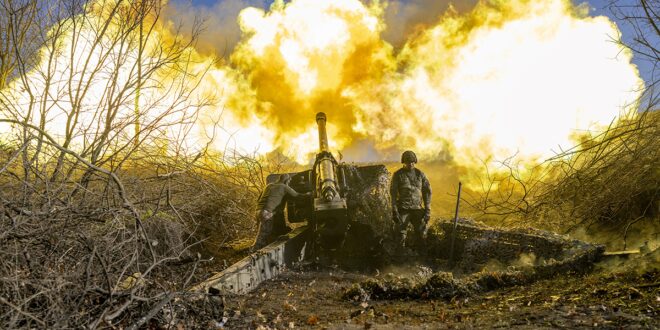In terms of its historical goals, Russia lost this war the moment it was started. He bombed Ukraine, which he wanted to lure back, into an enemy nation.
In the final scene of Coppola’s brilliant Vietnam war film epic, Apocalypse Now , after being put in physical and mental hell, Captain Willard, played by Martin Sheen, finds and finally slaughters the war-mad, barbaric warlord Colonel Kurtz, played by Marlon Brando. The young centurion thus becomes just like Kurtz, who whispers with his last words: “The horror, the horror…”
Apocalypse Now is a moving cinematic journey
into the world of our other human self emerging from under the veneer of civilization, the destructive, murderous instincts that have lived in us since prehistoric times.
What every war brings out of the people on this earth.
And this happened here, in our neighbor, a year ago: on the war map, the red half-circle of the thousands of kilometers of front line, which is slowly hardening, can be seen as an incurable open wound on the great Eastern European plain. In which hundreds of young men born to more and better, full lives perish every day, more and more pointlessly.
One year ago, on a February morning, we woke up to find that an old-fashioned, large-scale war had broken out in our neighborhood: Russia had attacked Ukraine. We were frightened, shaken, outraged, and horrified. The next day, an entire country mobilized to help the Ukrainian and Hungarian refugees heading towards us from Ukraine – the uplifting period of popular solidarity lasted for weeks.
Then… then we got used to war. First we devoured the news, then we started to disconnect from it. We hardened our hearts, closed our ears and eyes. Life, as always, went on. Even today, we should still have the feeling – that
it is an intolerable scandal crying out to the sky that this war can happen on European soil in the 21st century, and it can destroy people, homes, and infrastructure unhindered to this day.

Many analysts, experts and armchair hussars commenting on all sides forget about the two levels of interpretation of the war:
on the human scale and the historical scale.
We take less and less notice of the humanitarian disaster that afflicts Ukrainians every day. Let’s think about the fallen soldiers and their family members, elderly parents, wives and children. For individuals and communities trying to survive day by day, from big cities attacked by rockets to villages on the front lines.
And let’s think, on the other side, of ordinary Russian people silenced by the government and suffering from the consequences of war, as well as the conscripted Buryats, Tatars and others sent to fight in distant lands. Another dose of humanism and Christian solidarity, turning towards it, wouldn’t hurt us, I think.
The other, often forgotten thing is the historical scale, what does this war mean for the following decades and centuries.
I’ve already written it, I’m still saying it : whatever happens on the front lines and at the negotiating tables,
In terms of its historical goals, Russia lost this war the moment it was started.
Because what hurt Putin and the Russian leadership? The disintegration of the Soviet Union and especially the disintegration of the great Eastern Slavic (Russian-Ukrainian-Belarusian) empire. Moscow’s intention to once again try to tie together the torn threads can be interpreted as realistic. But what did Putin’s leadership achieve by attacking Ukraine, destroying Ukrainians and their living conditions? The fact that after three decades of a malleable, immature, identity-confused state, Russia bombed Ukraine into a hostile nation that rightly turned away from it.
Where, for many generations, murderous passions will boil over against the Moscow power. Whatever the end of the war.
The dream of a peaceful and friendly collapse of the Eastern Slavic nations, of a future Moscow-centered Slavic empire, was disintegrated on a historical scale.
What remains: a spiral of strife, violence and destruction,
Russia’s further path towards total dictatorship, Ukraine’s further path towards even more complete tyranny, weaving dreams of future reconstruction with Western help.
The tragedy of the Eastern Slavs on a historical scale is what is happening. And we cannot avoid the consequences of this either.
Babits has a poem that I once honestly thought was flat, empty pacifism. But I can no longer say anything else: “O peace! peace! / let there be peace! / Let it be over!”
 Eurasia Press & News
Eurasia Press & News


